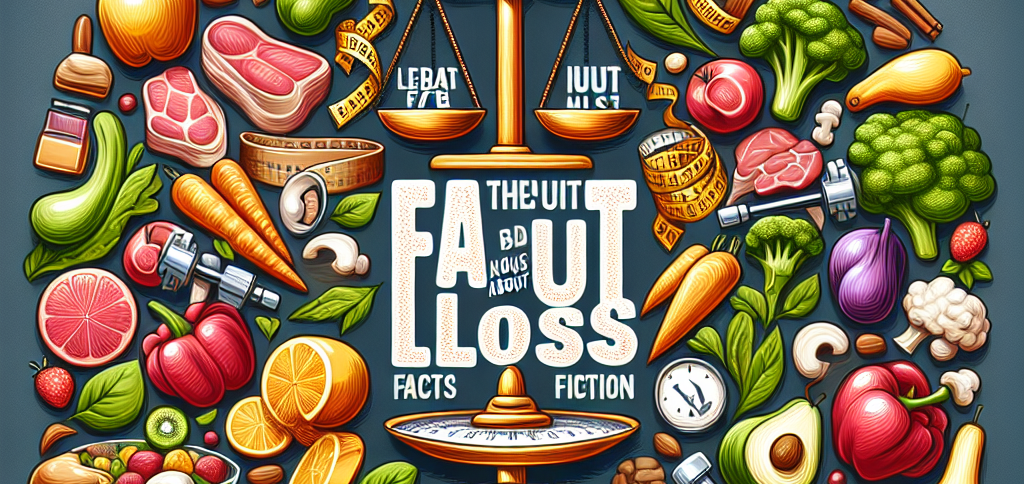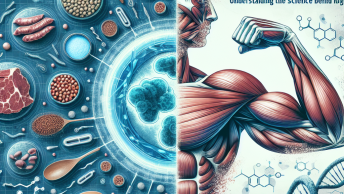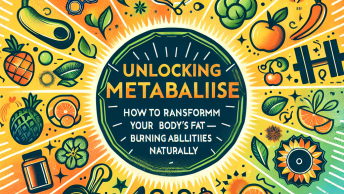When it comes to fat loss, the internet is flooded with advice, tips, and tricks. Unfortunately, much of this information is either misleading or outright false. Understanding the facts can help you make informed decisions about your health and fitness goals. In this article, we’ll debunk some of the most prevalent fat loss myths and set the record straight with science-backed facts.
1. Myth: Carbs are the Enemy
Fact: Carbohydrates are essential for energy. While it’s true that not all carbs are created equal, demonizing an entire macronutrient is unwarranted. Whole grains, fruits, and vegetables provide necessary nutrients and energy. Instead of eliminating carbs, focus on moderation and choose whole, unprocessed sources.
2. Myth: You Can’t Eat After 7 PM
Fact: The timing of your meals doesn’t dictate fat loss. What matters most is your overall caloric intake and energy expenditure throughout the day. Eating later at night can be perfectly healthy, provided you stay within your daily caloric needs. Just be cautious about your meal choices, as late-night snacking can sometimes lead to poor food selections.
3. Myth: Spot Reduction is Possible
Fact: Many people believe they can lose fat in specific areas through targeted exercises, such as crunches for belly fat. Unfortunately, spot reduction is a myth. Fat loss occurs throughout the body as a whole when you create a caloric deficit. While strength training can enhance muscle tone in specific areas, it won’t specifically target fat loss there.
4. Myth: Fat-Free Foods are Healthier Choices
Fact: Often, fat-free foods are loaded with sugar or artificial ingredients to enhance flavor. Just because a product claims to be fat-free doesn’t mean it’s healthy. You may consume more calories from these food items than their full-fat counterparts. Instead of focusing on fat content, pay attention to ingredient quality and overall nutrition.
5. Myth: You Need to Exercise Every Day to Lose Fat
Fact: While regular exercise is essential for overall health, you don’t have to hit the gym daily to see results. In fact, recovery days are just as important for muscle repair and growth. A combination of strength training and cardiovascular exercise, along with mindful nutrition, is effective for fat loss. Find a routine that works for you and your lifestyle.
6. Myth: Supplements Can Replace a Healthy Diet
Fact: Supplements can assist in your fitness journey, but they are not a substitute for a well-rounded diet. Many supplement claims lack scientific backing, and relying on them could lead to nutritional deficiencies. To optimize your results, focus on getting nutrients from whole foods first. If you’re interested in comprehensive strategies for fat loss, Click Here to learn more.
7. Myth: Low-Calorie Diets are the Best Way to Lose Weight
Fact: Severely restricting calories can lead to muscle loss and a slower metabolism. Instead of drastic diets, aim for a moderate caloric deficit that can be sustained over time. This approach is more effective for long-term fat loss and helps maintain muscle mass. Always consult with a healthcare professional before drastically changing your diet.
8. Myth: You Only Lose Weight When You Sweat
Fact: Sweat is your body’s cooling mechanism and does not directly correlate with fat loss. Some people might sweat more than others due to various factors, including genetics and environment, but the actual loss of fat occurs through a caloric deficit, not the amount of sweat produced during a workout.
9. Myth: All Fat is Bad
Fact: Fats are an essential nutrient for the body. Healthy fats, such as those found in avocados, nuts, seeds, and olive oil, play crucial roles in hormone production, nutrient absorption, and brain health. The real issue lies in the type and amount of fat consumed. Focus on incorporating healthy fats into your diet while being mindful of portion sizes.
10. Myth: Eating Less is the Key to Losing Weight
Fact: While a caloric deficit is necessary for weight loss, eating too little can backfire by causing metabolic slowdown and nutrient deficiencies. A focus on nutrient-dense foods, balanced meals, and appropriate portion sizes is more effective than simply eating less. Incorporating a variety of foods ensures you’re getting all the necessary nutrients your body needs to function optimally.
Conclusion
Understanding the truth behind fat loss is essential for anyone looking to improve their health and wellbeing. By debunking common myths, you can take a more informed approach to your weight loss journey. Remember that sustainable fat loss is a combination of a balanced diet, regular exercise, and a healthy lifestyle.
If you’re serious about achieving your fat loss goals and want to learn more effective strategies, Click Here to learn more. Making informed choices based on facts rather than myths can empower you to achieve lasting results. Keep educating yourself, seek guidance when needed, and stay motivated on your journey to a healthier you.






